Peg Herring's Blog, page 9
November 27, 2017
If You Publish...
...you'll often wish you'd spent more time making it better.
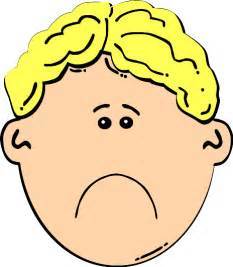 ...you'll want to keep your day job.
...you'll want to keep your day job.

...you'll be surprised how little your friends and family care.

...you'll find out how many people don't read books like yours--or don't read at all.

...you'll learn that typing THE END is only the beginning.
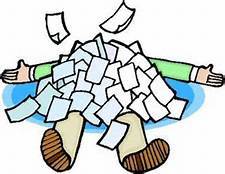
 ...you'll want to keep your day job.
...you'll want to keep your day job.
...you'll be surprised how little your friends and family care.

...you'll find out how many people don't read books like yours--or don't read at all.

...you'll learn that typing THE END is only the beginning.

Published on November 27, 2017 04:07
November 20, 2017
What You See Is What You Expect
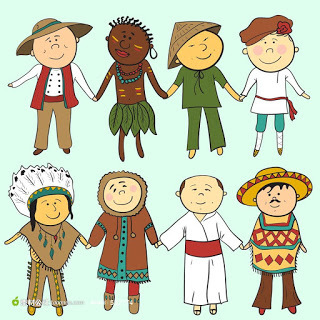 We "get" what we're told, shown, and subjected to over our lives, but in the best of times, changes come along that make us think. Thinking is good.
We "get" what we're told, shown, and subjected to over our lives, but in the best of times, changes come along that make us think. Thinking is good.When I was a kid in the '50s, it was perfectly okay for my school to put on a Minstrel Show, where kids in blackface acted (usually overacted) their perceptions of black people. Few in our rural area had met anyone unlike ourselves, and I recall watching as older kids had a great time shucking, jiving, and acting stupid--the way they perceived black folks.
My mom was once given a box of books, and being an inveterate reader, I worked my way through them. One was a joke book, and I enjoyed the anecdotes about Goldfarb, Wisenstein, and other city dwellers with odd names. They were all self-absorbed, bossy, and overly concerned with money. It wasn't until years later I realized the characters in those "jokes" were all Jews, and the laughs were meant to come from the assumption that all Jews were conniving cheapskates.
I had no idea what homosexuality was. Never mentioned. Never. Guess it wasn't very important, huh?
Comments were made to/about both sexes that denigrated them, and no one seemed concerned about whether that was right or wrong. "Running like a girl" was an insult to boys. One teacher insisted that playing rough games at recess was too "tomboyish" for me, and I needed to learn to act like a lady.
By junior high I knew girls were expected to fend off the sexual advances of boys, but boys were allowed, even expected, to make such advances.
I know. If you're my age you can tell the same stories, but for many of a certain age, it's hard to get past those prejudices. That's why you shouldn't look at political correctness as something invented to make you miserable. It simply demands that you think about what you do and say, despite what you've seen, heard, and done before. If you talk about how "great" America was in those days, you're thinking only of yourself, and that's wrong.
Let's say you begin a story with, "Yesterday at the gas station there was this Asian woman..." ask yourself why you told me she was Asian. Do I need to find her at some point, or are you drawing an unnecessary line between yourself and that woman? Without stopping to think once in a while, we tend to lump everyone together (hey, it's easy) and judge them because they're "different." Then we separate ourselves from them because we're--what? Not different? The same, as in white, Anglo-Saxon Protestants?
Not all cops are good or bad. Not all soldiers are heroes or cowards. Not all Republicans are greedy or noble. Not all members of a race, religion, ethnic group, or whatever fit the stereotypes we attach to them. I spent time in two Arab countries (neither of which was the war-torn mess we see on TV) and saw that the people there did the same things we do. They gossiped, worked, shopped, and went for a swim when it was hot.(I don't know what they did when it got cold because...it was hot.)
As a kid I was exposed to judgmental thinking from prejudiced, ignorant people (in the sense they didn't know what they were talking about). As an adult I know we should take people on a case by case basis. I've met some I didn't care for who had different skin color, but there's no relationship between those things. I've met lots of people the same color as me I'd rather never see again too.
Think before you generalize. Pause before you separate yourself from others, especially if you're separating in order to let yourself believe that you're better.
Published on November 20, 2017 08:47
October 9, 2017
Wanna-be Writers: Here's the Scoop
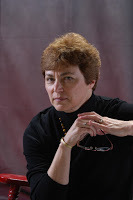 Oooooh, So Serious!The right way to get published? There isn't one!
Oooooh, So Serious!The right way to get published? There isn't one!That's really all you need to know, but of course I'm not done.
There are wrong ways, which include being in too much of a hurry and believing that your book is somehow different from the 3500 other books released each day. (Yup, I just read that figure, and while I didn't check it on Snopes, I'd say it's close with the current ease of "publishing")
Still, a lot of what's out there as advice for writers is just silly. Statistics about how many words you write per day don't mean diddly. We're all different, so we work differently. Articles that insist you must maintain a blog or dun your friends and acquaintances with emails each and every month are dumb. Ask yourself who's giving the advice: a company that wants to be your email provider? An author who thinks she's the only person who ever wrote a book? A company that wants to make money from your hopes and dreams? They all have an agenda, so take their advice with that proverbial grain of salt.
I'm going to do a workshop on getting published in Gaylord next month, and I try not to have any agenda except sharing what I know. I will never tell you my way is best (in fact, I've changed methods over the last five years as publishing changed). In my workshops I share what I've learned in a decade-plus as a published author. A writer needs to do what works for him or her, and the best way to find that out is to ask yourself what you want from your writing. Enjoyment? Recognition? A career? The workshop starts with a quiz (that you don't have to share with anyone) to help you zero in on what you're aiming for. When you know what the target is, chances of hitting it are a lot better!
 It's a long, unpaved roadInterested? The workshop, "Write, Edit, Publish," will happen at the Otsego County Library in Gaylord, MI, on November 18th from 9:00 a.m. to 1:00 p.m. I'm not sure if you need to reserve a spot, but as far as I know, it's free. (Phone them for more info: ((989) 732-5841)
It's a long, unpaved roadInterested? The workshop, "Write, Edit, Publish," will happen at the Otsego County Library in Gaylord, MI, on November 18th from 9:00 a.m. to 1:00 p.m. I'm not sure if you need to reserve a spot, but as far as I know, it's free. (Phone them for more info: ((989) 732-5841) I look forward to talking to wanna-bes about their work, but please understand that I won't read for you and see if I like it. My opinion has absolutely no bearing on whether you become rich and famous!
Published on October 09, 2017 04:44
September 4, 2017
Wrong, Wrong, Wrong
A few months ago my newest book, KIDNAP.org, was released. I had worked with the cover artist, who was very good about doing what I thought I wanted.
I wish she'd been a little bossier.
The author is usually asked what she pictures, and I had a vision. The only problem was, I'm not very good at vision. No artist's eye. No ability to see what the prospective reader will see and deduce.
I imagined how cool it would be to have all the main characters pictured in front of the house they end up living in. I included the van they use for kidnapping bad guys. I thought it gave a good sense of the story.
What I got was more Scooby Doo than kidnap capers.
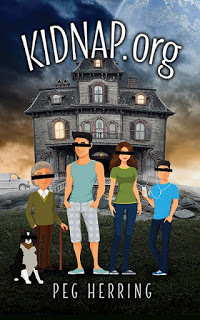 Yeah, it's cute, but the spookiness of the house and the cartoonish characters say the wrong thing to readers. When I ask audiences for an impression of the book I get, "Young adult, right?"
Yeah, it's cute, but the spookiness of the house and the cartoonish characters say the wrong thing to readers. When I ask audiences for an impression of the book I get, "Young adult, right?"
Um, no. It's a caper novel, meaning the characters are technically criminals (think Ocean's Eleven) but in this case they're completely justified as well as hilariously unprepared for life on the run.
Of course I asked people to tell me what they thought before I finalized this cover, but here's where I went wrong a second time. I showed them what I thought I wanted and said, "What do you think?"
People are polite. They say what they suspect you want to hear. Everyone (except one brave, intrepid friend) said it was great (Thanks, LT--wish I'd listened to you!)
People who read the book love it. I got a radio interview with a nationally syndicated show and lots of good press after its release, but it didn't take me too many times watching people at book fairs pass over the book to realize the cover is wrong. People do judge a book by its cover, and if the cover isn't right, it takes someone you trust saying "Read this" to overcome that bad first impression.
So I'm changing it. One of the nice things about modern publishing is that mistakes can be ameliorated if not completely eradicated. Since you're reading my blog, you might already have the book with the cover above in your stacks. If you do, thank you, but from now on, KIDNAP.org will look different.
I've learned a couple of things in the process that I hope serve me well in the future:
Picturing too many characters makes the cover uninviting.
Cartoon people makes a book look less serious, more childish.
Lots of people younger than I am (this book appeals to them for some reason) don't know what the black bars over the characters' eyes means, so it just seems weird.
Dark background implies dark story.
Friends won't tell you they hate your idea. It's easier to say, "Yeah, that's nice." With the new cover, I've been consulting people with multiple ideas, giving them choices and asking why they like what they like. Of course they don't agree on everything, but it gives me a sense of what a first-time impression is. For example, I wanted to put the dog, Bennett, on the cover, but no matter where we put him, he gave the wrong impression. We aren't kidnapping dogs, but that's what people thought. Sadly, Bennett is no longer in the picture.
I could go on, but you get the drift. As soon as the cover artist finishes the new one, I'll post it here so you can tell me if you like it better. Fingers crossed!
I wish she'd been a little bossier.
The author is usually asked what she pictures, and I had a vision. The only problem was, I'm not very good at vision. No artist's eye. No ability to see what the prospective reader will see and deduce.
I imagined how cool it would be to have all the main characters pictured in front of the house they end up living in. I included the van they use for kidnapping bad guys. I thought it gave a good sense of the story.
What I got was more Scooby Doo than kidnap capers.
 Yeah, it's cute, but the spookiness of the house and the cartoonish characters say the wrong thing to readers. When I ask audiences for an impression of the book I get, "Young adult, right?"
Yeah, it's cute, but the spookiness of the house and the cartoonish characters say the wrong thing to readers. When I ask audiences for an impression of the book I get, "Young adult, right?"Um, no. It's a caper novel, meaning the characters are technically criminals (think Ocean's Eleven) but in this case they're completely justified as well as hilariously unprepared for life on the run.
Of course I asked people to tell me what they thought before I finalized this cover, but here's where I went wrong a second time. I showed them what I thought I wanted and said, "What do you think?"
People are polite. They say what they suspect you want to hear. Everyone (except one brave, intrepid friend) said it was great (Thanks, LT--wish I'd listened to you!)
People who read the book love it. I got a radio interview with a nationally syndicated show and lots of good press after its release, but it didn't take me too many times watching people at book fairs pass over the book to realize the cover is wrong. People do judge a book by its cover, and if the cover isn't right, it takes someone you trust saying "Read this" to overcome that bad first impression.
So I'm changing it. One of the nice things about modern publishing is that mistakes can be ameliorated if not completely eradicated. Since you're reading my blog, you might already have the book with the cover above in your stacks. If you do, thank you, but from now on, KIDNAP.org will look different.
I've learned a couple of things in the process that I hope serve me well in the future:
Picturing too many characters makes the cover uninviting.
Cartoon people makes a book look less serious, more childish.
Lots of people younger than I am (this book appeals to them for some reason) don't know what the black bars over the characters' eyes means, so it just seems weird.
Dark background implies dark story.
Friends won't tell you they hate your idea. It's easier to say, "Yeah, that's nice." With the new cover, I've been consulting people with multiple ideas, giving them choices and asking why they like what they like. Of course they don't agree on everything, but it gives me a sense of what a first-time impression is. For example, I wanted to put the dog, Bennett, on the cover, but no matter where we put him, he gave the wrong impression. We aren't kidnapping dogs, but that's what people thought. Sadly, Bennett is no longer in the picture.
I could go on, but you get the drift. As soon as the cover artist finishes the new one, I'll post it here so you can tell me if you like it better. Fingers crossed!
Published on September 04, 2017 04:42
August 21, 2017
On Being Everyone's Teacher
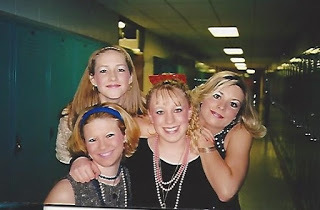 Starting in 1978 (I think) and ending in 2002, I was one of two, sometimes three, English teachers at our high school. That meant every student capable of sitting in a desk for fifty minutes had at least one class from me. For most it was sophomore English and speech.
Starting in 1978 (I think) and ending in 2002, I was one of two, sometimes three, English teachers at our high school. That meant every student capable of sitting in a desk for fifty minutes had at least one class from me. For most it was sophomore English and speech.Years later, the results of my work are on display on Facebook, Twitter, etc., and it's pretty interesting. I get to keep track of where everyone lives, whom they marry (or don't), how their kids are growing, and how they feel about life in general.
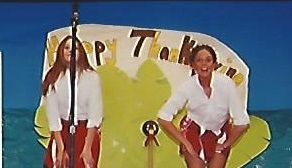 Mostly, I love it. I get comments sometimes from those who aren't sure of their English skills and worry that I will correct their posts. (Not a chance, unless you ask me to.) I get memories of the "good old days," often funny incidents but sometimes messages of thanks for what I hope was respect for all my students. I get a few political arguments, though I try to keep out of the worst of that quagmire. (The funniest/saddest was from a student who was so lazy in high school he wouldn't pick up a book, much less read one. Before the election he sent me a list of articles I should read because I apparently hadn't digested the "correct" information on current affairs.)
Mostly, I love it. I get comments sometimes from those who aren't sure of their English skills and worry that I will correct their posts. (Not a chance, unless you ask me to.) I get memories of the "good old days," often funny incidents but sometimes messages of thanks for what I hope was respect for all my students. I get a few political arguments, though I try to keep out of the worst of that quagmire. (The funniest/saddest was from a student who was so lazy in high school he wouldn't pick up a book, much less read one. Before the election he sent me a list of articles I should read because I apparently hadn't digested the "correct" information on current affairs.)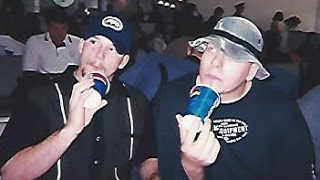 The best thing about social media is seeing my former students' successes. Whether it's those children they keep posting photos of every
The best thing about social media is seeing my former students' successes. Whether it's those children they keep posting photos of every day; their announcement of a degree, new job, promotion, business, etc.; or the pics of their recent trip to Grand Canyon or Paris or the Halibut Festival, I love seeing them out there doing stuff.
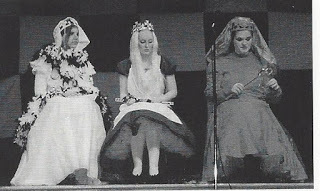
Keep those posts coming, people. When you were everyone's teacher for almost three decades, there's a lot to catch up on.
Published on August 21, 2017 04:52
August 7, 2017
The Skinny on Author Appearances
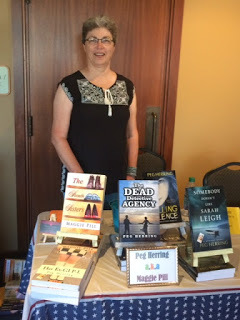 Muskegon Book Festival 7/17
Muskegon Book Festival 7/17Some might have a mistaken idea of how author appearances go. I know I did way back when.
I thought I'd sit at a table at the front of the bookstore and people would come in, see me, and say, "Oh, my, what have you written?" I'd tell them a little about it (it's called a pitch, and you practice it) and they'd say, "Sounds lovely. I'll take one--no, make that two. My sister likes mysteries too."
As the girl says in A Chorus Line, "That ain't it, kid."
Some ask you where the bathroom is.
Some ask if you can recommend a good children's book for their granddaughter.
Some ask if you carry the Wall Street Journal.
Some walk in a half-mile circle to avoid passing close enough for you to speak to them.
Some tell you about the book they're going to write when they get time.
Some tell you about their second cousin, who wrote a book about her near-death experience and her talk with Jesus, who sent her back because she still had things to do. It's amazing, and you can buy it on Amazon.
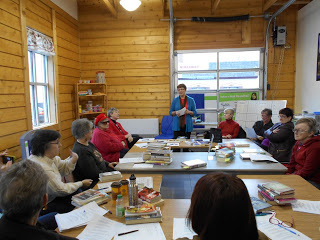 Petrolia, Ontario, library talk
Petrolia, Ontario, library talkThere's nothing wrong with any of that. Anyone who knows me knows I love talking to people. The only ones who irritate me are those who can't even say hello for fear I might reach out and force them to purchase a book, but I can understand even that, since I've seen some pretty aggressive author sales tactics.
People who come to a bookstore or a library are readers, which automatically makes them good people even if they don't read mysteries or buy books from local authors. It's just that when friends say, "I see you're all over doing appearances and signings," my guess is their view of what happens at such events is like mine used to be, not like real life.
That said, I'll be at the Petoskey Library's annex building (across from the library itself) next Monday, August 14, from 4:00-5:00 for the 2nd annual Petoskey Author Fair. I know it sounds a little crazy that thirty authors will be there for only one hour, but that's what was decided, and I'm grateful organizers are willing to do these things for writers and readers. They say if there are people at 5:00 who haven't had a chance to meet all the authors, they'll keep the event going, so we might be there until 6:00. Who knows?
Stop by and meet a nice group of northern Michigan authors in many different genres. I'm told there will be ice cream.
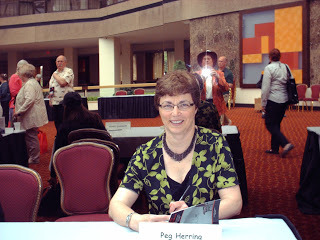 Book Signing at Malice Domestic (Washington D.C.)
Book Signing at Malice Domestic (Washington D.C.)
Published on August 07, 2017 05:08
July 17, 2017
Here's What I Don't Get
I've been seeing ad on my Facebook feed lately that claim to help you generate plots for your novels. I guess my question would be "If you haven't got a plot, why do you want to write a novel?"
A novel needs a plot, a reason to exist. As a reader I get tired of some "literary" novels that tell a lot about how a person feels and how he got that way without the person ever doing anything interesting. Many books that are hailed by critics as "stunning" and "evocative" fail to hold my attention because nothing happens.
Even a plot where things happen will disappoint me if those things are unbelievable or disappointing. A main character who kills had better have a reaaaaaalllly good reason for it. And both the murder and the resulting events must be logical.
Here are some examples that disappointed me, despite the author's skill with words. I fully admit I'm in the minority here, because all of these were successful books; some even got awards.
I recently read a book (well, I skipped to the end after a while) in which the murder of a woman was investigated by her husband (a cop) and her brother (an ex-cop). No person in authority in the police department had a problem with that. Yeah, right.
A book that got all kinds of praise from critics (because of that "evocative" writing) had as the murder scenario a situation where the killer could not have been certain his intended victim would be the one to approach the booby-trapped item. There were dozens of people present and any one of them was every bit as likely to be killed. Of course he was lucky and got the right person!
Another book touted as a "wonderful debut novel" had a plot that was great. I was on the edge of my seat all the way through--until the defeat of the villain depended on her decision, deep in the jungle and after days of chasing the protagonist and finally capturing her in a remote village, to put on some makeup. Almost as bad as the North Pole villain who, with the authorities closing in, decided to rape the protag on the open surface of a glacier at twenty degrees F, because "I've got you now, my pretty, and I intend to have my way with you!" (Can you say "Junior high boy's midnight fantasy"?)
Do these people have beta readers? Do the beta readers not say, "Um, you lost me when the guy hung his pants on the icicle"?
Conclusion: I'm pretty much against buying a plot, but then again, there are times when an author might be better off with a purchased plot than that crazy one he spun in his/her head.
A novel needs a plot, a reason to exist. As a reader I get tired of some "literary" novels that tell a lot about how a person feels and how he got that way without the person ever doing anything interesting. Many books that are hailed by critics as "stunning" and "evocative" fail to hold my attention because nothing happens.
Even a plot where things happen will disappoint me if those things are unbelievable or disappointing. A main character who kills had better have a reaaaaaalllly good reason for it. And both the murder and the resulting events must be logical.
Here are some examples that disappointed me, despite the author's skill with words. I fully admit I'm in the minority here, because all of these were successful books; some even got awards.
I recently read a book (well, I skipped to the end after a while) in which the murder of a woman was investigated by her husband (a cop) and her brother (an ex-cop). No person in authority in the police department had a problem with that. Yeah, right.
A book that got all kinds of praise from critics (because of that "evocative" writing) had as the murder scenario a situation where the killer could not have been certain his intended victim would be the one to approach the booby-trapped item. There were dozens of people present and any one of them was every bit as likely to be killed. Of course he was lucky and got the right person!
Another book touted as a "wonderful debut novel" had a plot that was great. I was on the edge of my seat all the way through--until the defeat of the villain depended on her decision, deep in the jungle and after days of chasing the protagonist and finally capturing her in a remote village, to put on some makeup. Almost as bad as the North Pole villain who, with the authorities closing in, decided to rape the protag on the open surface of a glacier at twenty degrees F, because "I've got you now, my pretty, and I intend to have my way with you!" (Can you say "Junior high boy's midnight fantasy"?)
Do these people have beta readers? Do the beta readers not say, "Um, you lost me when the guy hung his pants on the icicle"?
Conclusion: I'm pretty much against buying a plot, but then again, there are times when an author might be better off with a purchased plot than that crazy one he spun in his/her head.
Published on July 17, 2017 04:03
June 5, 2017
The Strategies of Authoring
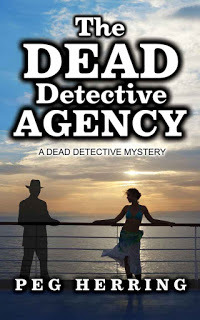 I've been at this for a while now, and I've seen the publishing world undergo drastic changes. When I got my first contract with a traditional publisher, that was the way to go, because books published by an author in what was then called "vanity publishing," were expensive to produce and almost certain to fail.
I've been at this for a while now, and I've seen the publishing world undergo drastic changes. When I got my first contract with a traditional publisher, that was the way to go, because books published by an author in what was then called "vanity publishing," were expensive to produce and almost certain to fail.That changed when two things happened: a few brave authors (e.g. Hugh Howey) began working to understand and use the system to their benefit and Amazon made it (fairly) easy and definitely cheap to publish books.
My time with traditional publishers was extremely valuable. I learned about the need for good editing, good cover art, and good resources for promotion. On the downside, I learned I had few options once I signed a contract, and the financial reward for my work was a long time coming and not nearly as much as people imagine when they plop down $26.00 for a hard cover book.
Now that I'm sort of independent (I've stuck with one of my publishers so technically I'm what they call a hybrid author--which sounds kind of science fiction-y but isn't) I'm learning how books sell in the times when hundreds of thousands of books are added to the possibilities readers are offered each year. Some are tossed into the world like a monkey throwing mud at a canvas, with the naive belief that someone will call it art. Others (like mine) are the result of hard work, dozens of revisions, and many people's input, both paid experts and wonderful volunteers.
All that to say this: One of the ways independent authors attract notice for their books is by giving them away. In this time of free books everywhere, it's hard to get a reader to pay for a book if they haven't read an author before or heard good things about her from someone they trust. Authors like me give away the first book in a series in order to entice readers to buy Book Two, Three, etc.
The Dead Detective Agency is now free through all Draft2Digital outlets, including B&N, Kobo, and the like. I've notified Amazon, so they will eventually price match, though I can't predict when that will happen. If you haven't met Seamus (pronounced shay mus) and don't mind a light-hearted mash-up of mystery and the Afterlife, try the e-book for free, then go back for the rest of the series at only $2.99 each.
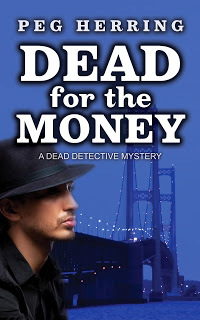 Seamus Meets the Mackinac Bridge
Seamus Meets the Mackinac Bridge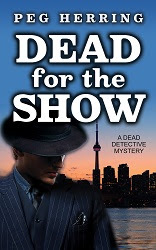 Seamus Joins a Theater Group
Seamus Joins a Theater Group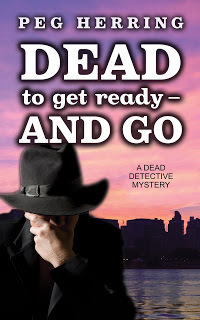 Seamus Investigates His Own Murder
Seamus Investigates His Own MurderOh, and what I'm reading now: Two Days Gone by Randall Silvis. Great scenario, but he'd better not disappoint me when I get to the truth!
Published on June 05, 2017 04:33
So You've Read KILLING SILENCE...
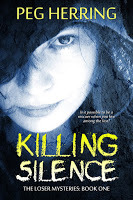 The Loser Mysteries consists of three books. In Killing Silence we meet Loser, and she's kind of a mess, but as the book goes on, she shows she has a strong core that refuses to melt away despite the past.
The Loser Mysteries consists of three books. In Killing Silence we meet Loser, and she's kind of a mess, but as the book goes on, she shows she has a strong core that refuses to melt away despite the past.The story continues in Killing Memories, as Loser goes back to her hometown to find peace and escape notoriety. Of course that doesn't happen--these are murder mysteries, after all!
The third and final installment, Killing Despair, brings Loser back to Richmond to chase down her demons and face her fears.
People ask why I didn't continue the series, but it seemed to me that after those things happened, Loser is no longer Loser. She's on her way to being Beth again, and any future books would end up being regular detective stories. Maybe someday an idea will arise that fits, but once she was doing well, I saw no reason to plunge her back into the bad old days.
There will be a Kindle deal soon on Killing Memories, so if you need incentive to continue the story, look for a reduced price on Book #2 in the near future.
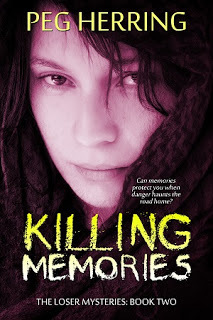
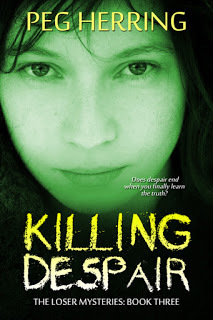 PS, I love what they did with the cover idea, as her face begins partially covered and gets more visible in each. Not fond of the green in KD, but authors don't always get a say.
PS, I love what they did with the cover idea, as her face begins partially covered and gets more visible in each. Not fond of the green in KD, but authors don't always get a say.
Published on June 05, 2017 04:33
May 29, 2017
New Life for a Book
One of the things authors need to recognize is that books don't just take off and become bestsellers. Some lie around for months, even years, waiting to be noticed. We're encouraged not to neglect our backlists, but it's difficult when there's something "NEW! NEW! NEW!" to talk about. That's been the case with the Loser series, which ended a couple of years ago.
Killing Silence is one of my favorites among my books. I love the protagonist, Loser, who is homeless and damaged but not down and out. The idea that homeless people are counted out of society, ignored by most and assumed to be incapable of paying attention, makes her a perfect sleuth.
The publisher of this series has decided to make Killing Silence free on Kindle for May 29-31. I'm really excited about this, since I think freebies are a great way to introduce a book to new readers.
If you've already read the book, you can help by passing the news on to your Kindle-reading friends. If you haven't, here's a chance to meet a unique character. Some get the impression the book is "dark" but that isn't true. While Loser begins in a bad place, the story traces her reclaiming herself as a person. Still, it scares some. At a library talk last week a woman confessed that she'd been reluctant to begin it, though it came highly recommended. "I thought, it wasn't my thing," she told me. "But you really get wrapped up in the story."
Aha! That was my plan all along. Once you get to know Loser, you'll want to read the other two books in the series--which will make both me and my publisher happy.
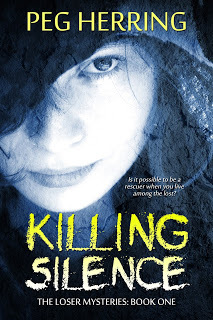 https://www.amazon.com/Killing-Silence-Loser-Mysteries-Book-ebook/dp/B00A87IAQG
https://www.amazon.com/Killing-Silence-Loser-Mysteries-Book-ebook/dp/B00A87IAQG
It's also available in print and audio. Just not free :(
Killing Silence is one of my favorites among my books. I love the protagonist, Loser, who is homeless and damaged but not down and out. The idea that homeless people are counted out of society, ignored by most and assumed to be incapable of paying attention, makes her a perfect sleuth.
The publisher of this series has decided to make Killing Silence free on Kindle for May 29-31. I'm really excited about this, since I think freebies are a great way to introduce a book to new readers.
If you've already read the book, you can help by passing the news on to your Kindle-reading friends. If you haven't, here's a chance to meet a unique character. Some get the impression the book is "dark" but that isn't true. While Loser begins in a bad place, the story traces her reclaiming herself as a person. Still, it scares some. At a library talk last week a woman confessed that she'd been reluctant to begin it, though it came highly recommended. "I thought, it wasn't my thing," she told me. "But you really get wrapped up in the story."
Aha! That was my plan all along. Once you get to know Loser, you'll want to read the other two books in the series--which will make both me and my publisher happy.
 https://www.amazon.com/Killing-Silence-Loser-Mysteries-Book-ebook/dp/B00A87IAQG
https://www.amazon.com/Killing-Silence-Loser-Mysteries-Book-ebook/dp/B00A87IAQGIt's also available in print and audio. Just not free :(
Published on May 29, 2017 04:35



